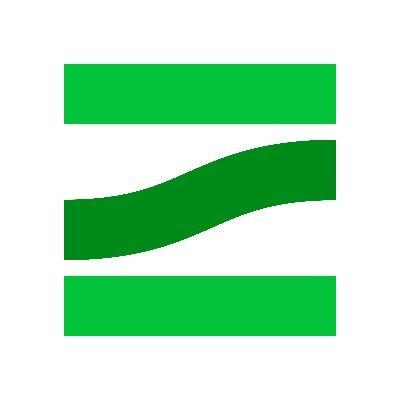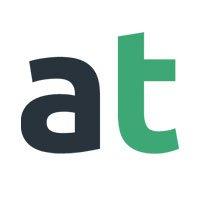Buy pre-IPO stock in private companies
Invest in farmland
Investments
$10,000
The minimum investment on EquityZen is $10,000, though this may vary by offering.
Investments
$15,000
The minimum investment on AcreTrader varies by listing, generally starting at $15,000, with some past deals ranging from $3,000 to $100,000. This range is determined by factors such as the size of the offering and the price per acre.
High Risk
4/5
Investing in private companies via EquityZen involves risks such as limited liquidity, market volatility, company performance uncertainties, regulatory changes, less available information, and potential lack of diversification, which could impact investment returns.
Moderate Risk
3/5
Investing in AcreTrader involves risks like casualty, condemnation, and eminent domain, common to real estate investments.
Minimum Liquidity
1/5
EquityZen offers liquidity for vested shares only. It does not provide liquidity for unvested shares, unvested RSUs, or options directly.
Minimum Liquidity
1/5
AcreTrader investments are considered illiquid, meaning investors should be prepared to hold their investments for the specified duration. While it may be possible to sell shares in a private transaction after this period, there is no established market for them, making resale uncertain.
Receive new reviews from Fintorial
Not Predictable Return
N/P
Unlike public market investments, private investments carry higher risks and unpredictability. Consequently, it's challenging to define a standard return rate for EquityZen investments.
High Return
9.4-30.3 %
The returns from investing in AcreTrader vary, with historical examples showing realized internal rates of return (IRR) ranging from 9.4% to 30.3% over holding periods between 1.7 and 4.2 years. These variations highlight the potential for both moderate and significant returns, depending on the specific investment and market conditions.
Long-term Investment
2-5 years
Typically, companies on EquityZen have received late-stage funding, suggesting an expected investment horizon of 2-5 years, but outcomes can vary widely.
Long-term Investment
3-10 years
AcreTrader investments target hold periods of 3 to 10 years, though this can vary based on market conditions and sale opportunities. Properties may sell earlier or extend beyond the target period, depending on whether favorable buying offers arise or if market conditions dictate a longer hold.
Who can invest
United States
Investing on the AcreTrader platform is limited to accredited investors, as defined by SEC regulations. Non-U.S. citizens can invest if they are legal residents of the United States.
Moderate Volatility
3/5
Assets on EquityZen, which are shares in private companies, can be highly volatile due to limited public information, sensitivity to market conditions, low liquidity, and company-specific events, leading to significant price fluctuations.
Moderate Volatility
3/5
Farmland assets on AcreTrader typically exhibit lower volatility compared to stocks and bonds, offering a more stable investment option due to the steady demand for agricultural products and the land's intrinsic value.
Regulation and audits
SEC Regulated
EquityZen Securities is registered with the SEC and is a member of FINRA/SIPC, ensuring it adheres to regulatory standards and practices for investor protection and undergoes regular audits.
Regulation and audits
SEC Regulated
AcreTrader is regulated by the Securities Exchange Act of 1934, SEC rules, FINRA rules, and state laws, reflecting its commitment to transparency and investor protection. As a registered Broker-Dealer, it must adhere to strict financial standards, undergo regular audits, and comply with ethical practices to maintain its standing and ensure the security of its investors' assets.
Insurance
No
EquityZen is a FINRA/SIPC member firm, offering account protection up to $500,000 (including $250,000 for cash claims) through SIPC in case of brokerage failure, not covering market value losses.
Insurance
Yes
AcreTrader does not explicitly mention specific insurance coverage for investments on its platform. Generally, real estate investments, including farmland, are insured against risks like natural disasters and fire to protect investment value.
Payouts
No Recurring Payouts
Investors in private companies on EquityZen typically do not receive dividends, as these companies often reinvest profits to fuel growth.
Payouts
Dividends
AcreTrader may distribute net cash from annual income to investors after operating expenses, typically once a year in December. These distributions, based on pro rata ownership, are not guaranteed. If distributed, funds go to the investor's AcreTrader wallet or, for SDIRA or IRA accounts, to the custodian.
Withdrawals
Investors can get their money back from investments on EquityZen mainly through an IPO, acquisition of the company, or secondary market sales on the platform. However, returns depend on market demand and timing of these liquidity events, with no guaranteed timeline.
Withdrawals
Investors can typically get their money back when the property they've invested in is sold at the end of its expected hold period, which may range from 3 to 10 years.
Extra Fees
Yes
EquityZen charges a 5% fee to sellers upon transaction closure. For investors, a one-time sales fee applies: 5% for investments up to $500,000, 4% for $500,000 to $1 million, and 3% for over $1 million.
Extra Fees
Yes
AcreTrader charges investors initial closing costs around 2% of the offering value and an annual 0.75% servicing fee of the land's value for management. The primary revenue comes from a 5% commission on the farm's sale, charged to the seller. There are no “carried interest fees.” Fee structures vary by deal, so reviewing offering documents is recommended for specifics.
Taxes
Tax Form
EquityZen issues a Schedule K-1 for taxable events and provides vetted tax documentation to investors. Upon investment, individuals complete necessary tax forms (W-9 or W8-BEN) and receive annual tax updates.
Taxes
Tax Form
AcreTrader aims to provide K-1 tax forms electronically by early March, although delays can occur due to external reporting needs. Tax treatment varies: gains on land sold within a year are taxed at ordinary income rates, while longer holdings are taxed at capital gains rates. Depreciation on buildings or equipment may affect taxes.

